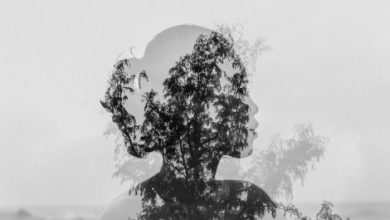
Kenyan author Sam Kahinga’s short story is a part of a collection titled Changes: An Anthology of Short Stories” that revolves around the lives of an unnamed narrator and his lady love Eva who are not accepted as an ideal match by the man’s father owing to her blindness. However, certain twists and turns in the lives of the key characters alter the circumstances to culminate in a mutual resolution. The author reflects on the dynamic relationship between sight and vision on the lines of disability as well as the generational conflict that readers can well relate to.
The Last Breath | Summary
The story’s inception lies in media res as the narrator observes his father’s disappointing glance towards Eva who goes back to her dormitory after their meeting. As the father-son duo sit in the car, the narrator has too many questions on his mind but his father chides them away by producing his own single question “what will you do? You can’t marry her like that!” The narrator is done with his father’s angst against his love and decides to pursue his own will. His mother who tries to act as a peacemaker advises him to follow his heart while also disclosing his father’s battle with lung cancer. The news splits his priorities and when he meets Eva one day, he proposes to her with a ring. But Eva asks him to wait and reveals her plans for a surgery that would open her gate to the colorful world. She is unaware of the identity of the donor who later is revealed to be her future father-in-law. The story then shifts to the happy and sunny months of August where the couple is happily married, Eva’s surgery is a success and the narrator’s father succumbs to his terminable condition. The narrator visits his grave and recounts their moments whilst believing his father to be looking at him from the grave.
The Last Breath | Analysis
Kahinga opts for a first-person narrator to draw his readers to a world of feelings and conflicts that every individual experiences to render his work an emotional and dramatic touch. The story works on a self-reflecting tone with moments of reviewing and contemplation on the part of the narrator. He opines on every action in the story to conclude it with a viable stance. Whether it is his judgment regarding his father’s attitude towards Eva, the disclosure of his dad’s terminal illness, or his proposal to Eva- each instance accompanies a series of internal conflicts that the narrator attempts to cope with.
These conflicts highlight the split between the mentalities each generation exercises. Fathers tend to have a more experienced outlook towards life and thus advise us on decisions that would contribute to a better future. On the other hand, young people often live in the moment. They prioritize emotions over practicality. Since the story largely focuses on the acceptance of a blind woman by a strict father, the narrative antagonizes the father in this light. His traits as an interfering figure in the narrator’s life who forces his decision on him overshadow his silent love for his son. The disciplinarian demeanor of a father represses his selfless love for his child. He is not a villain, as looked down upon by many. The stance towards the narrator’s father changes when we learn about his condition which compels us to think about his decisions pragmatically. But this still cannot justify his ethical standing on his attitude towards Eva. There is no denying that the father does display a prejudicial glance towards her and considers her physical impairment to be a hindrance on the journey towards a happy life for his son.
We still live in a society that works on ‘able-bodied’ conditioning predicated for centuries. People with disability are considered outcasts and unfit. Their capabilities are undermined at multiple levels and are viewed as unusual creatures. For a woman, it becomes a factor for her double marginalization. Gender and disability go hand in hand to put a woman on the periphery of society. They are denied opportunities at both intellectual as well as familial levels. The story, however, does attempt to build in a positive direction as Eva is unconditionally loved by the narrator.
Also, his father’s dislike for Eva is not solely for her lack of sight. His cancer troubles him more and he just wishes his son to not have much on his plate in the future. Sons fail to see this line of reasoning when their fathers disapprove of their decisions. But the course of events brings a change in both the father and the narrator. The father’s decision to lend his eyes to Eva after his death not only gives her the gift of sight but also keeps him alive in a way with his family. The narrator who otherwise developed feelings of hatred for him now loves and respects him for his decision concerning the donation. He finally understands the intricacies of the responsibilities a father is burdened with.
The author also plays with the idea of sight in his representation of visually fit people who fail to see things in life and vice versa. For instance, the narrator’s blindness in his love for Eva manages him not to notice his father’s terrible condition. Whereas Eva, who couldn’t see due to a lack of a healthy pair of eyes, can actually sense the sadness of the narrator as they meet one July afternoon. The metaphorical blindness couples with the literal one and interestingly paints the characters in different lights. There are multiple verbs that the writer uses to emphasize the notion of sight like “watching”, “glancing”, “looked”, “seen” “stared” etc to suggest his preoccupation.
The Last Breath | Literary Devices
Juxtaposition
The author employs the device of juxtaposition to present the development of simultaneous emotions in the narrator when he proposes to Eva: “my voice was calm but there was a lump of excitement in my throat.” The nervousness is natural amidst his father’s dying condition and his venture to marry the woman his father does not approve of when he utters “my heart was beating hard and loud- with unspeakable joy. But sorrow was equally great.” Also, Eva’s response to looking at the ring leaves the narrator confused: “It was chilly but I felt sweat on my neck.” Of course, he couldn’t comprehend the context of Eva’s words until the news of her donor is revealed.
Irony
Eva’s impromptu desire “to see the ring” after the narrator proposes brings an ironic moment in the story as she is physically incapable of that wish at the moment.
Symbolism
Kahinga’s use of weather conditions as a symbol to mirror the mood and situations in the narrator’s life is clever. The bleak weather of July and the dark and grey sky after the sunny month of June reflects his inner conflict after learning the news about his father’s lung cancer which throws him into a dilemma to choose between Eva and his father.
Subsequently, the month of August when the sun smiles again portrays the happy days in his life as Eva becomes his wife and his dad donates his eyes to her after his death. His father proves his selfless love for his son which he somehow fails to express when alive.
Personification
The sun is shown smiling towards the end of the story when things fall in place for all the characters.
Foreshadowing
The narrator expresses his contempt towards his father’s unfaltering viewpoint concerning Eva’s blindness in a sarcastic reply “then give her eyes” which hints at the possibility of Eva’s revival of sight in the future as a resolution to his father’s approval. Readers also get an alert about an impending twist of fate when the narrator observes his father’s “terrible cough.” This episode coupled with the tense look that his father displays after meeting Eva directs us to the possibility of a situation the narrator as well as the readers are unaware of up to that moment.
The Last Breath | Characters
Narrator
He is an unnamed character who experiences a series of conflicts throughout the story. The initial struggle lies in his attempts to convince his father to let him marry the woman he loves who is physically impaired. As a radical young man, he does not believe in the judgments of society and the challenges of a disabled partner. His father’s disapproval presents itself as interference in his life which he assumes to be a ritual since the day he is born. Even his career choice to be a musician gets blown by his father who compels him to be a banker. However, he is unaware of the battle between life and death his father has been fighting for a long which forces him to reconsider his decision to marry Eva. But he chooses her over his father i.e. his love sets its priorities. Towards the end, he visits his father’s grave and smiles at him for his selfless love by donating his eyes to Eva. The narrator, at last, resolves his conflict with his father and values him even more after he is no more.
Eva
She is a young blind woman who loves the narrator but fails to earn the approval of her father-in-law. As a sweet and charming woman, the narrator does not let her disability overshadow her other qualities. She has a zeal for life and willingly accepts the surgery for her cornea. This decision reflects her consideration for the narrator who proposes to her when she is still blind. She does not want him to suffer and live a challenging life and thus provides evidence of her pure and beautiful soul.
Narrator’s Dad
He is a strict personality who like all the usual fathers is portrayed as an authoritarian controlling the life decisions of his son ranging from his career choice to the woman he’ll marry. His prejudicial stance towards a disabled woman draws contempt from his own son. But when the story reveals his battle with lung cancer, we tend to develop a soft corner for him as his actions are viewed as directed toward the betterment of his son’s life. He wishes him to lead a life without any struggle. The presumption that he donates his eyes to Eva after his death renders him in the position of a man who undergoes a change of heart in his last days. This last act not only gives Eva a new life but to his son too who finally marries the woman he loves and also maintains a respectful relationship with his father after his death.
Narrator’s Mom
She is a peacemaker who loves her husband as well as her son. She discloses to the narrator about his father’s cancer to allow him a careful consideration of facts before proceeding with a decision. Like a typical mother in every family, she wishes for the happiness of all.


